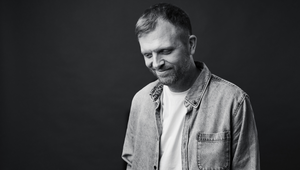
Google Zeitgeist 2015: The Next Giant Leap

A white
carpet which refers to something pure.
Shaggy
which brings a sense of comfort.
With new scent, which features something aseptic.
So this is my first step in the Zeitgeist 2015 auditorium.
Added to this there are the moderately elongated white walls.
And excellent lighting design.
Done. Now
Eric Schmidt, Google's Executive Chairman, takes the stage.
It's about
to start.
"We
need people who dream of polishing stars."
It might
have ended there. The phrase that summarizes what the world expects from us.
But it was only the beginning.
In two
days, a group of thinkers and leaders from areas as diverse as music and atomic
energy shared stories and cast questions about where we are and where we go, at
the 10th edition of the event sponsored by the company that changed the way we
see the world: Google.
The
"Today's creators and visionaries of tomorrow" gathered at Zeitgeist
had one mission - to point the way to the next giant leap of mankind.
The amazing
thing is that during the meeting, the shining stars were not the new ways to
use the Internet or technological devices. But words as old as ‘solidarity’ and
‘cooperation’, which mingled naturally with innovation and technology,
revealing that the robotic and cold tomorrow predicted in science fiction
movies was nothing but a delusion.
These are
the human values, overcoming capacity, the need to learn and look to the person
beside you, the main assets of any professional, company or institution - and
your guarantee of a place in the future.
To act on
behalf of those principles is necessary. And it must be now. "History is
not written by those who sit clapping, but for those who jump in the ring no
matter whether they will lose or win,” said Kailash Satyarthi, Nobel Peace
Winner in 2014.
And
examples of those who played with everything in the ring were not lacking
during the Zeitgeist. Lawyer Bryan Stevenson, founder of the Equal Justice
Initiative, for example, embraced the cause of defending the poor from social
injustice and revealed how to believe that we can change the world has
everything to do with innovation. "In technology, you only do well when
you believe in things you've never seen. That hope is what makes you stand when
others told you to sit". And Bryan went further: "It's not possible
to innovate without putting yourself in uncomfortable situations, we have to
take risks," he stressed.
Risks can
mean literally jumping from the stratosphere, breaking the sound barrier and
the world record in free fall, as Alan Eustace did, former VP of Google. The
feat shows us that we can always overcome ourselves and refers to a phrase from
another speaker at the event, the music producer, Kanye West: "Dreams are
more important than money."
Among many
professional and life lessons, from absolutely fascinating and inspiring
people, I close this text with the messages of focus, perseverance and humility
left by Butch Harmon, the golf instructor who trained many people, like the legend
Tiger Woods:
-
"Among the world's best players, the big difference is in the head, it is
basically a matter of trust."
- "The more you train, the better you get. And the better you get the more you want to learn."
- "What you learn after you think you know everything is probably the most important lesson in life."
Do we need
more?















